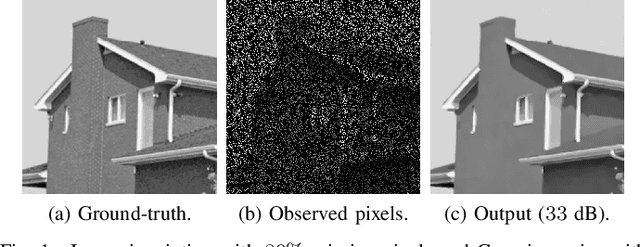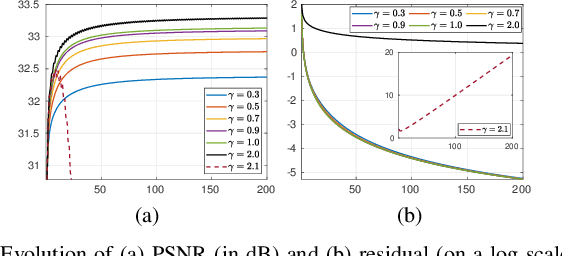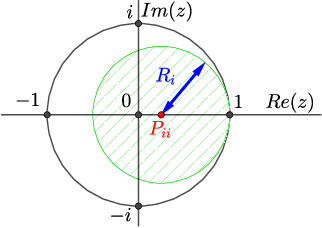Plug-and-play ISTA converges with kernel denoisers
Paper and Code
Apr 14, 2020



Plug-and-play (PnP) method is a recent paradigm for image regularization, where the proximal operator (associated with some given regularizer) in an iterative algorithm is replaced with a powerful denoiser. Algorithmically, this involves repeated inversion (of the forward model) and denoising until convergence. Remarkably, PnP regularization produces promising results for several restoration applications. However, a fundamental question in this regard is the theoretical convergence of the PnP iterations, since the algorithm is not strictly derived from an optimization framework. This question has been investigated in recent works, but there are still many unresolved problems. For example, it is not known if convergence can be guaranteed if we use generic kernel denoisers (e.g. nonlocal means) within the ISTA framework (PnP-ISTA). We prove that, under reasonable assumptions, fixed-point convergence of PnP-ISTA is indeed guaranteed for linear inverse problems such as deblurring, inpainting and superresolution (the assumptions are verifiable for inpainting). We compare our theoretical findings with existing results, validate them numerically, and explain their practical relevance.
 Add to Chrome
Add to Chrome Add to Firefox
Add to Firefox Add to Edge
Add to Edge